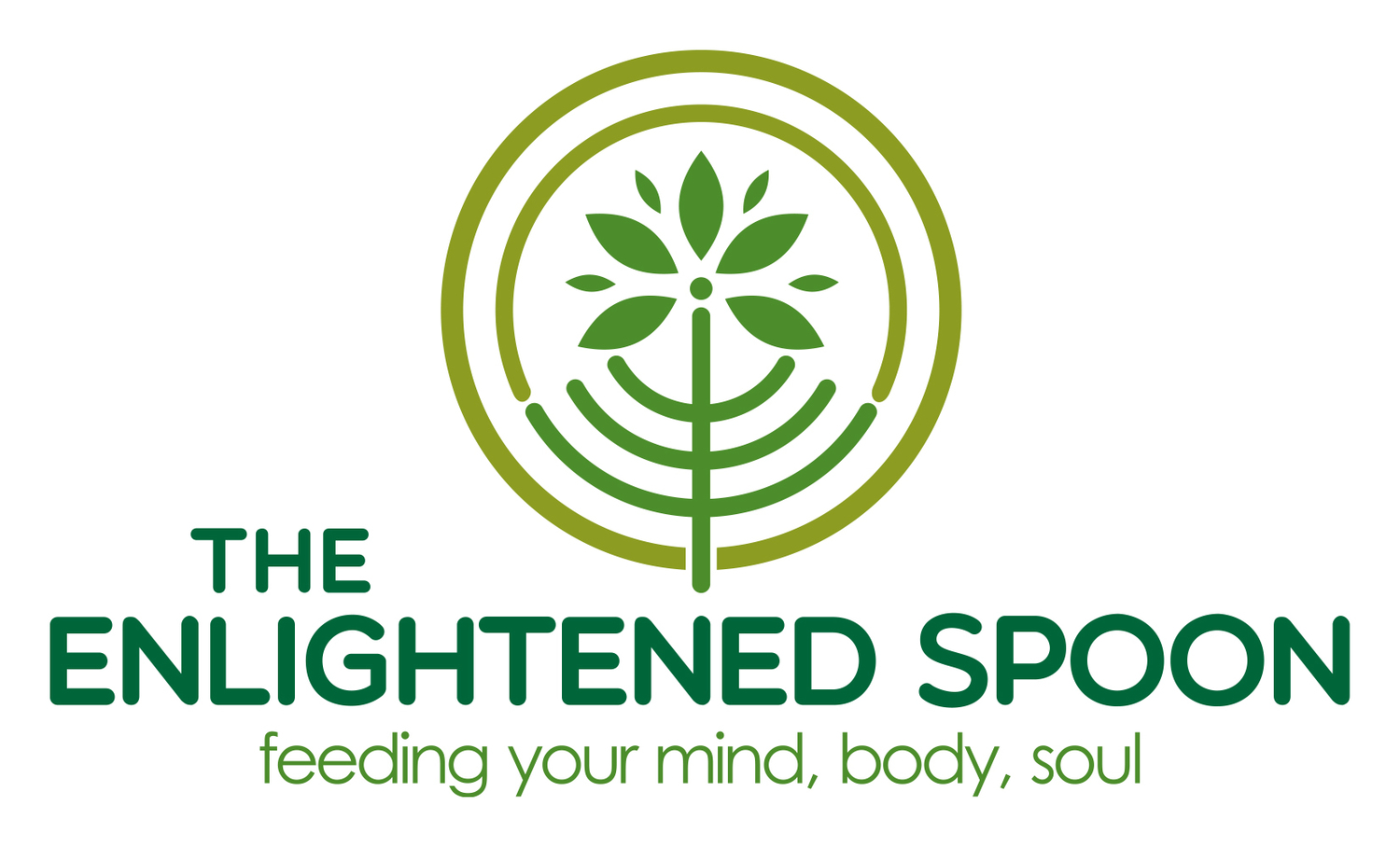Meditation: Where Do I Even Start?!
/"Meditation" or "mindfulness" or the combination of both "mindfulness meditation" seem to be the buzz words these days. What is it? Why should you care? How do you begin? Let's get down to the basics and explore this...
What Is Meditation?
According to the ancient text, Yoga Sutras of Patanjali, meditation is one of the 8 limbs of yoga. One of the more familiar limbs might be "asana", or the physical postures people contort themselves into - what you usually think of when the word "yoga" is mentioned. In fact, the physical poses in a hatha/ vinyasa class are just one form of yoga. And yes, you guessed it, meditation or "dhyana" is another.
Interestingly, the act of meditation itself is a spontaneous experience that occurs after the mind has reached a quiet, centred, focussed space. It's not something that one can conjure up instantly. That's why, when someone says "I'm going to meditate", what they really mean is "I'm going to use techniques to get me to a meditative state". ...but that's a mouthful. The way I understand it from my own practice is - you can't really experience meditating without going through the last 4 limbs of yoga according to Patanjali (the last 3 limbs are often discussed together) - pratyahara, dharana, dhyana, samadhi.
Before I bore you to tears, what this essentially means is the senses need to be withdrawn from external stimulus (pratyahara), the mind comes to a single-pointed focus (dharana), consciousness of the act of meditation disappears and hence the spontaneous state of meditation happens (dhyana), ultimately leading to a blissed out state where the ego disappears and you're one with the Universe. Seriously.
Wooooaahhhhhhhhh. THAT is one big promise! :)
Why Should I Care?
Even if you're skeptical of any of the above, countless research has shown the benefits of meditation with improvements including but not limited to:
Anxiety
Depression
Pain
Stress Reduction
Ultimately, you'll need to try it out before deciding if it's something that works for you. Think of it as training for your mind - just as how you'd go to the gym to train your body, you need to keep practising the techniques to train your mind.
Which Style Do I Try?
There are many different styles of meditation (just like how there are many different styles of physical yoga). Some are contemplative, where you contemplate on a particular topic/ theme (eg. loving kindness or forgiveness), where others are concentrative, where your attention is concentrated on something (eg. the breath or a mantra/ sound or visualisations).
Whichever style it is, the final goal is the same - to train your mind to that single-pointed focus, laying the groundwork for the spontaneous meditative state to happen. So if you're not really "feeling it" the first few times you try it out, explore all the other styles available too, until you find one you connect with. Sometimes, it can even be as simple as not liking the voice or accent of the person who's guiding the meditation - if so, don't feel defeated. Just move on to the next one!
Also remember - as with anything new, it will take a while before you settle into a groove and results show - just as how going to the gym once isn't going to make you an instant beefcake. Be patient, and practice, practice, practice! :)
How Do I Start?
I'm a huge believer in learning meditation or mindfulness from an experienced teacher. One-on-one instruction from someone who has had a daily, committed practice, who has learned the technique from a lineage of teachers before him or her is always going to be invaluable knowledge for you. However, not everyone has the luxury of having someone like this near them, and these days technology can bring these teachers to your doorstep with the internet and mobile phone apps.
Online and Phone App Recommendations:
Headspace App. Started by an ex-monk who's distilled the meditation techniques down to the basics of mindfulness, with nothing religious about it. Daily guided meditations that build up using the same technique to help familiarise yourself with the practice - great for beginners. Beautifully designed too (something that's lacking in most apps!) Available on mobile phone. Free first 10 sessions. Subscription after.
Insight Timer App. Free guided meditations, music tracks, talks and courses by some of the world's leading meditation teachers - great for beginners or if you're curious who else/ what else is available. Includes a meditation timer function for your own unguided meditation time and an online meditation community. Available on mobile phone.
Meditation Oasis Podcasts. Free guided meditations, instructions for meditation and music tracks available online or on mobile through Apple iTunes.
Tara Brach Podcasts. Free guided meditations available online and on mobile through Apple iTunes.
The House of Yoga. Guided meditations available through this online yoga portal. 10 day free trial, subscription after.
Meditation Schools (London):
Light Centre, Belgravia. 6-week mindfulness course with free intro talk.
Will Williams Meditation, Soho. 4-day Vedic meditation (aka transcendental meditation) course with free intro talk.
London Buddhist Centre, Bethnal Green. Daily meditation classes, 4-week foundation courses, lunchtime courses and meditation retreats.
Triyoga (Chelsea, Camden, Soho). Daily meditation and yin yoga (meditative physical posture) classes available at various locations.
Meditation Schools (Amsterdam):
De Roos, Vondelpark. 8-week mindfulness trainings, various meditation classes from pranic healing, mantra healing to sleep. In Dutch/ English (check language).
Transcendental Meditation, Centrum. 4-day course with free introductory session. In Dutch/ English (check language).
Tibetan Buddhist Centre, Centrum. Daily meditation classes and workshops. Check language.
Delight Yoga (Centrum, Oud-West, Amstel). Daily meditation and mindfulness/ yin yoga (meditative physical posture) classes. In English.
Download & Print all recommendations as a pdf.
Find YOUR Spot:
Finally, if you're starting at home, find a quiet spot that you can go to at the same time everyday to help you get into the habit/ routine. My spot is on my yoga mat, in front of a few things that make me feel happy - all mostly gifts from friends: an abstract painting of a person seated in meditation; a butterfly and bird an artist friend made from hand-sawn wooden triangles; a photo of Barcelona shutters - souvenir from a city that always makes me happy; gorgeous dip-dyed candles.
The point is - you can place anything around you in this meditative space you feel connected to, that puts you in a mental or emotional mindset that's open and calm... It doesn't have to be a hippy-dippy altar filled with all kinds of gods and goddesses (but if that's your thing, then rock on!)
With summer approaching in the Northern hemisphere, you could even get outside and find your spot by the ocean, in the woods or in a field. This was my spot last weekend, in Vondelpark.
Enjoy exploring this new practice! If you've got any questions, please feel free to ask me in the comments below. Also, if you've got more meditation classes and teachers you like anywhere in the world you are, please feel free to add them to the comments below too. Sharing is caring!
Found This Helpful?
If you enjoyed this or found this helpful, sign up for my 5 mind + body tips I send out monthly to help you live a high performance life with less stress and more ease. It’s possible to do All. The. Things. without feeling like a headless chicken all the time!
REFERENCES:
Canter, P (2003). The therapeutic effects of meditation. Available: http://www.ncbi.nlm.nih.gov/pmc/articles/PMC1125975/. Last accessed 2 April 2016.
Hoge EA, Bui E, Marques L, et al. (2013). Randomized Controlled Trial of Mindfulness Meditation for Generalized Anxiety Disorder: Effects on Anxiety and Stress Reactivity. Available: http://www.ncbi.nlm.nih.gov/pmc/articles/PMC3772979/. Last accessed 2 April 2016.
Goyal M, Singh S, Sibinga EM et al. (2014). Meditation programs for psychological stress and well-being: a systematic review and meta-analysis. Available: http://www.ncbi.nlm.nih.gov/pubmed/24395196. Last accessed 2 April 2016.
Iyengar, B (2002). Light on the Yoga Sutras of Patanjali. 4th ed. London: Thorsons, Harper Collins.
Zeidan F, Johnson SK, Diamond BJ, et al. (2010). Mindfulness meditation improves cognition: evidence of brief mental training. Available: http://www.ncbi.nlm.nih.gov/pubmed/20363650. Last accessed 2 April 2016.












